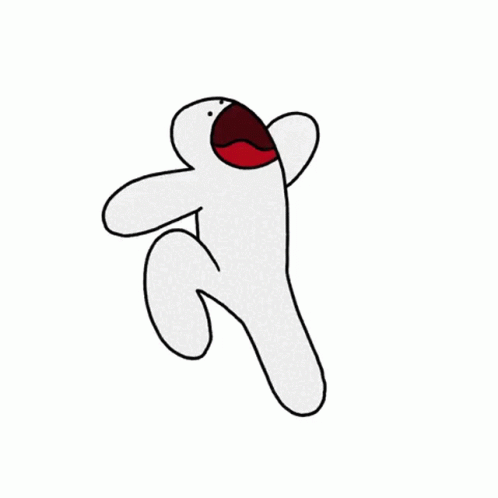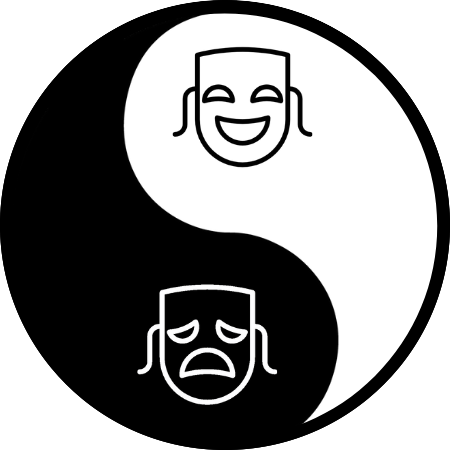"I Feel Like A Failure" (Said Every Actor Ever)
If the Dojo received a dollar for every declaration of "I feel like a failure" we had brought to us, we'd have enough money to counter the destruction of the Amazon rainforest. If we added to that pile for every instance we've thought that very thought ourselves, we'd be able to fund the regeneration of forests around the globe.
The Dojo exists to be the place where actor amigos can come to have these courageous and vulnerable conversations, so we have absolutely zero gripes about that. We just feel it's unfortunate that "failure" is such a common self-descriptor — especially given it's simply not true.
The two beasts
Before we dive into how we approach these conversations on coaching calls, let's first distinguish between two very different beasts: having objectively "failed" and experiencing a pervasive sense of "being" a failure. As we've spoken about the first beast and how to tackle it here and here, we'll be addressing the latter below.
The second beast is admittedly a more formidable foe. Where the first concerns an inadequate action (i.e. regret), the second is tied to inadequate being (i.e. shame). The first beast says, "I did something wrong"; the second, "I am wrong". The second beast digs its claws deeper. It latches onto our identity.
I'mma gon' be super real with you: I've passionately argued with three separate therapists about the value of the second beast. My position was, "I'm only as driven as I am to become a bigger, better human because of the second beast". Their position — in the words of Dr Brené Brown — was, "Shame is highly, highly correlated with addiction, depression, violence, aggression, bullying, suicide, eating disorders".[1]
Still, I was mighty stubborn about this belief. So committed was I to holding onto it that I didn't realise the rope burn it was causing. In the end, it took two Vipassana retreats in addition to those three separate therapists for this truth to finally sink in. Yes, the second beast can indeed be used to flag necessary course corrections, but it can't be used to fuel self-improvement. Nothing stable has ever been built on deficiency.
Claw removal
Speaking from both personal experience and from the work we've done with fellow Dojo actors, claw removal, unfortunately, tends not to be a one-and-done act. Most of us will need to free our identity from the grasp of beast numero duo a good few times while walking the actor's path. It's a skill worth getting skilled in.
- The first step in the claw removal process is to remember you're not an actor. To quote our wise friend Dr Mark Seton: "You're a human being who acts, rather than an actor — as though there were some alien species called 'actor'".[2] I'm as guilty as anyone of letting my actor self consume my entire self. I can testify to the dis-ease this mindset can cause in the long run. For the sake of your well-being, strive to nip this one in the bud whenever you sense it arising.
- Those who've been with us for some time will groan at step two. We talk about this all. the. freaking. time. If you haven't defined a personal vision of "success", define it. If you have, reconnect to it. We'd unscientifically guesstimate that across all our coaching calls, defining or reconnecting to one's personal vision of success is the cure 90% of the time. Hence why we talk about it all. the. freaking. time.
- From here, it becomes more of a choose-your-own-adventure scenario. If we find that we are, in fact, living aligned with our vision of success but are feeling swayed by ye ol' thief of joy (comparison), try this exercise. If, on the other hand, our sense of failure stems from not living aligned with our personal vision, we have to take responsibility and put ourself on that track. We have a whole online course dedicated to turning your personal vision into a system, if you'd like some support. You can also read more about this tool (which we've unashamedly borrowed from sports psychology) here.

The reality is that our industry isn't yet set up in a way that prioritises the flourishing of its actors. It will get there, but it isn't there yet.
So in the meantime, it's crucial that we're our own champion — the one constant in this crazy game we've signed up to play. Subscribing to erroneous beliefs such as "being" a failure won't do the trick. Instead, remember your wholeness, reconnect with your personal vision of success, and boldly march on. Frequent self-directed flying hugs won't hurt, either.
Thoughts / feedback / challenges? We'd genuinely love to hear.
Need some 1-On-1 attention? Book your coaching session today.
Citations:
[1] https://twitter.com/TEDTalks/status/1178877194153713664?lang=en
